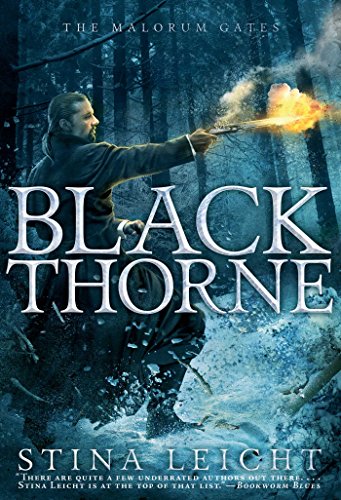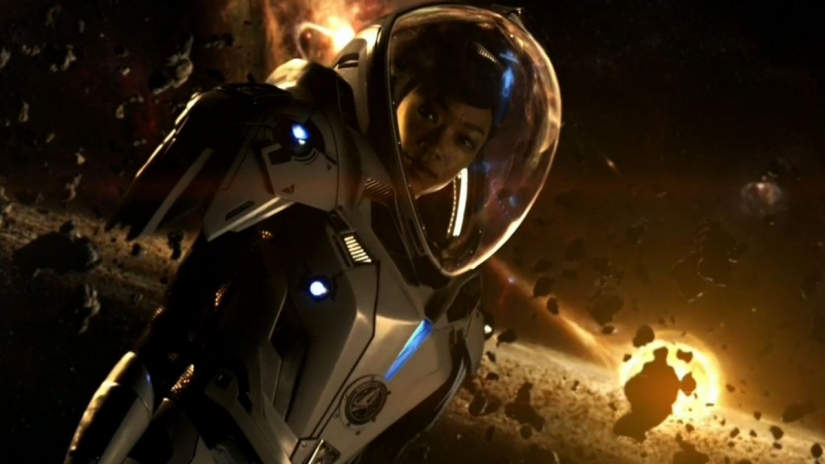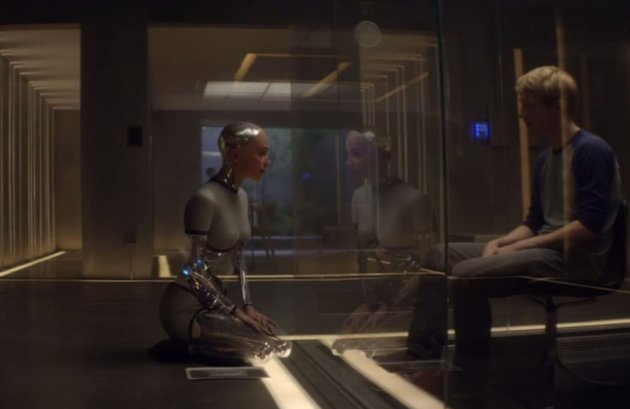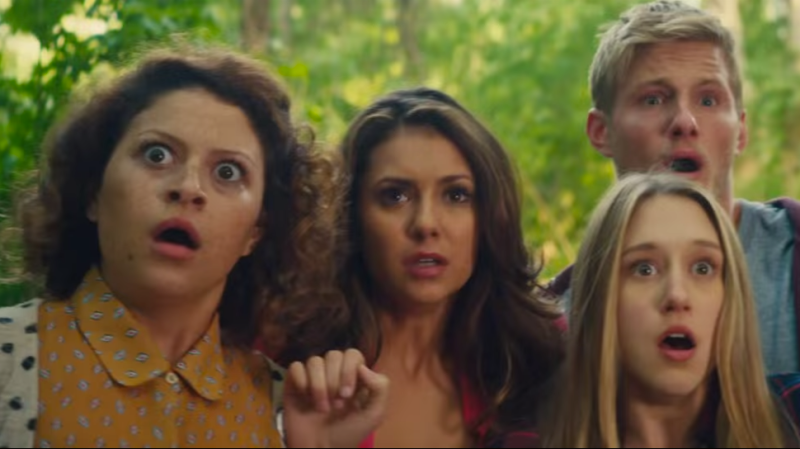The Intersection: Blackthorne and the Importance of Secondary Characters

There are many tools one can use for worldbuilding. A lot of them aren’t obvious to the reader—and in fact, I’d venture to say that the most effective techniques are those the reader doesn’t notice. This is how real life works. For example: events and cultural distinctions clearly affecting the world and those living in it but no one openly discusses are a big factor in everyday life.[1] Another of these hidden opportunities for worldbuilding involves secondary characters. One of the things I aspire to do is to populate my stories with any number of interesting characters capable of taking over the narrative. (Not that I let them.) Not only does it give the main characters people to interact with and thus further the plot, it’s realistic. Each of us thinks of ourselves as the main character of our story. Point of view characters in a novel are no different. However, we aren’t the only main character. Every “secondary character” we meet—doctors, neighbors, people on the street—is the main character of their own story in which we are the secondary character. That’s reality. In addition, well-developed secondary characters will sometimes alter the main character’s perspective of the world. This, too, is how the real world works. How many times have you encountered someone whose perspective on a situation altered your own? If you’re like me, quite a few. None of us operates in a vacuum. Characters in a narrative shouldn’t either.
The Intersection: Let's Talk Double Standards

These days there’s a great deal of discussion about what Diversity means (hint: it doesn’t mean cultural appropriation), why we should or shouldn’t have it, and who is permitted to engage in it. This is, despite the contention and disruption in the community, a very good thing. Change doesn’t happen unless we actively engage it—particularly when the problem in question (systemic bias) is complex and multi-layered. Let me emphasize this again: the issue of diversity in Science Fiction and Fantasy is a complex one. In my experience, it requires extensive self-awareness, a willingness to endure uncomfortable situations and discussions without defensiveness, the ability to understand that a larger, implied context is a factor in communication, and a great deal of humility. Systemic oppression isn’t an easy problem to resolve. Humanity has been struggling with it since the first human being grabbed leadership of a group and declared another group the enemy. If it were as simple as say, one group “getting over it” or “waiting until the old people die off, carrying their offensive beliefs with them,” it would’ve been resolved generations ago.
Star Trek: Discovery and the Clueless

We’re getting a new Star Trek series!!! It’s called Star Trek: Discovery, and I’m excited for multiple reasons. We haven’t had a new Trek series in quite a while, and Michelle Yeoh is going to be a starship captain. I’m a big fan of Michelle Yeoh. She’s an amazing martial artist and an incredible actor. Sonequa Martin-Green (see below) will be her first officer. A Trek series piloted by women of color?!?! In addition, this will be one of the few SF properties wherein the women of color are not covered in makeup which hides their race. Also? A black woman with Vulcan training? (I can’t decide if she’s part Vulcan or a Federation ambassador’s kid or someone sent to Vulcan by the Federation to learn as much as possible.) That is wonderful. I can only imagine how affecting it is to see this kind of representation as a black woman who is also a Spock fan. (Hey, it only took a bunch of women pilots in the background of a Star Wars movie to bring me to tears.) Holy crap, I’m so proud to be a Trekkie at this moment, but I’m also disappointed.
The Intersection: AI and Creator-bias

Today’s post isn’t about science fiction exactly, but we’ll file it under “thoughts that inspire science fiction” and vice versa. Ask a professional scientist if observer bias exists, and they’ll say yes. Medical science alone has many examples of what happens when bias is ignored. It affects medical practice in dangerous ways. Until recently, drug testing was almost never conducted on women. The reasoning was that women have “hormone fluctuations,” and the male-dominated medical industry wanted a pure data-baseline. Society believes that male is default for human. So, the establishment assumed that whatever is safe for men is safe for women and never looked back. Of course, the failure in logic here is that if a drug’s effectiveness is adulterated enough by female hormone fluctuations that it alters the end data, how could they have missed that this also meant this interaction could change its efficacy on the patient? Or to put it another way: How could they possibly know whether or not the drugs were, in fact, safe for women if the drugs aren’t tested under conditions with shifting hormones — the very conditions under which the drug was being used? This isn’t the only example.[1] And medicine isn’t the only science to suffer because of unexamined bias. And here is where we begin our discussion of AI.
The Intersection: Dear Horror Genre, Let’s Talk

Dearest Reader, I hope you don’t mind taking a side-quest into Horror today. Horror, as I see it, is related to Science Fiction and Fantasy. Yes, it’s its own entity, but it’s related via Surrealism. Sometimes they’re so closely related that it’s difficult to separate one from the other. (See Alien, Invasion of the Body Snatchers, Attack the Block, Pitch Black, and Event Horizon to name a few.) I used to consume a great deal of Horror[1], but at a certain point I no longer felt safe or welcome — even as a viewer. So, I left it behind, but I think I may be wandering back in thanks to a number of new releases and well, a certain podcast that I’d also like to recommend. (Women in Caskets, I’m looking at you. :)) WiCs reminded me of how much I miss Horror, and of how much I’ve missed. Understand that I say the following out of love. I believe it’s entirely possible to love something and criticize it at the same time. In fact, I feel taking a more nuanced position regarding the subject of one’s fandom is being a responsible fan. That’s a notion you’re going to see addressed over and over in this column. Get used to it. And yes, I am a fan. Writers are some of the biggest fans out there. Also, understand that I am, in part, speaking to myself as a writer. Due to my resolution to weed systemic oppression out of my work, I’ve come to know that I’ve internalized an impossible amount of misogyny, racism, and other forms of oppression. It’s hard work, ridding my creative garden of all those awful weeds. The roots go deep. This, from someone who is actively working on it. I don’t expect perfection. As I’ve said before, human beings aren’t capable of being perfect. However, being a better human, a better writer, and a better fan is one of my main goals in life. So, here goes.
The Intersection: Imagine

“This is called the theory of narrative causality and it means that a story, once started, takes a shape. It picks up all the vibrations of all the other workings of that story that have ever been. This is why history keeps on repeating all the time.” — Terry Pratchett “People think that stories are shaped by people. In fact, it’s the other way around.” ― Terry Pratchett When people ask me why I feel diversity is important in Science Fiction and Fantasy, I direct them to Terry Pratchett. He wrote a great deal about racism, sexism, and classism. He also knew a thing or two about people and story. Mainly, that story has a big effect on how people view the world and themselves.

